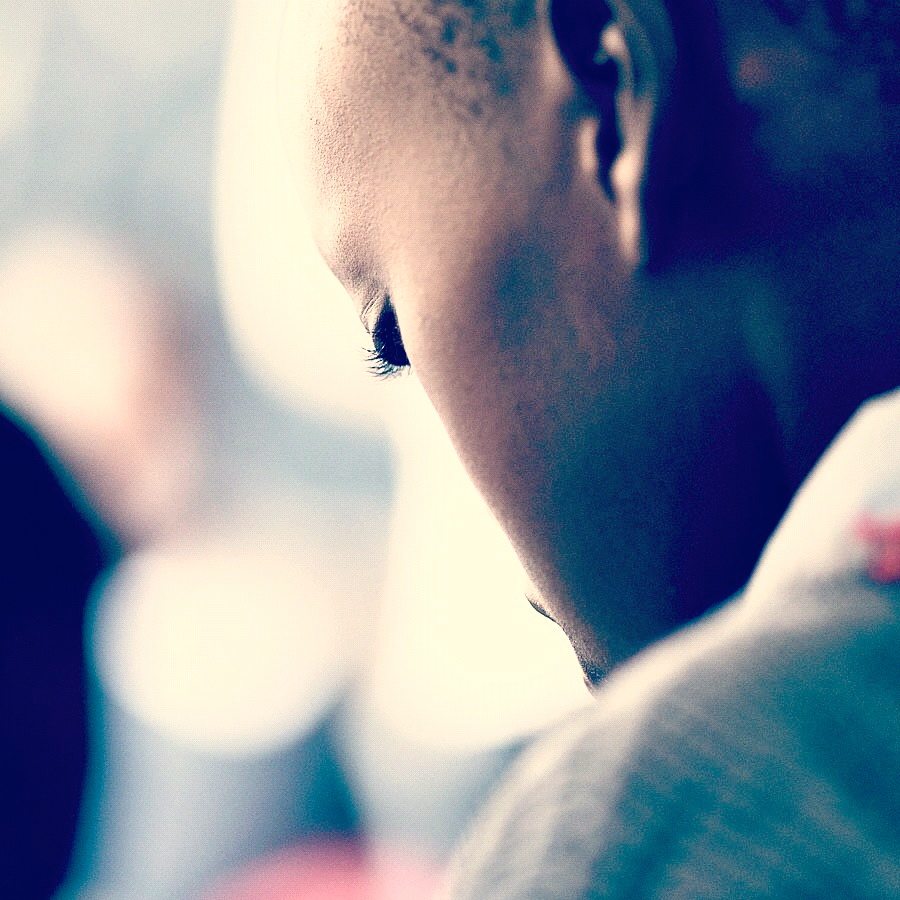

I know this little boy; I love this little boy. He just turned nine, but he reads like an 11-year-old, effortlessly. He is smart, easily exasperated, and he's kind and compassionate in a way children who have suffered greatly tend to be. Sam* was orphaned as a toddler and lives at the Flying Kites Children's Home in Njabini, Kenya. If you met Sam, you would undoubtedly remark on his long and curly eyelashes. They are striking. Recently, after patiently explaining to me that "all American girls love eyelashes," Sam asked me why his eyes were always red. He sounded uncharacteristically worried, and it made me nervous. There is something else Sam is unaware of: he has the HIV virus. While it has been discussed with him many times, H, I, and V are just letters on a Scrabble board to Sam; he doesn't know like you and I know. Yet every year that passes brings him closer to an understanding of HIV that more closely resembles ours: an understanding that, in many instances, can be both outdated and unhelpful.
Before I started working in development, I did not know much about HIV or AIDS; I assumed that they were one and the same. I knew, of course, how the virus was transmitted and I knew that it was deadly. Times have changed. Our pediatrician says that if we continue to follow a strict regimen of medication, Sam is likely to enjoy a long life. But driving home from the doctor's office in Nairobi, we pass a four-foot-tall sign which reads "HIV/AIDS kills! Change your behavior or perish." It won't be long before Sam notices such messaging too and I am left wondering how the information we give him at home can compete with fear tactics like these?
Churches and schools also seem to be failing to attend to the needs of HIV+ children. Twelve-year-old David, an older child living at the Flying Kites Home, can tell you exactly what HIV/AIDS is, and how you catch it. He puts the emphasis on 'catch it,' naturally. David lives in Njabini, but the HIV/AIDS literature that he is studying (aloud) could place him in almost any overpopulated, under-resourced school in the country. Recently, a New York-based publishing house donated thousands of copies of a children's book in which HIV is depicted as a green, pock-faced monster with red eyes and fangs. Several of David's classmates are HIV-positive and while these materials are effective in lamenting how infectious and incurable the virus is, they fall far short of telling the whole story to the children who arguably need to hear it most.
The question, "Am I going to die?" is not met with a one-word answer at our house. HIV is not the death sentence it once was; a sentiment missing from much of the public health literature available to HIV-positive children living and learning in remote communities. If these kids are to fight for their health, they need messages of encouragement, but the voice of Sam's doctor is easily drowned out by poorly-conceived (well-intentioned) campaigns. And there is little question that a collective lack of hope renders children and their families much less likely to seek out medication vital to their health.
Not all HIV-positive children who obtained early treatment are as healthy as Sam. Many are not; many have died. But surely prognoses for HIV+ children should be reserved to that sacred space between a patient and doctor? Is it really necessary, or effective, for the global call to see a 'Generation Free of AIDS' to manifest as a Grim Reaper, warning us on television, on the radio, through billboards and leaflets that HIV equals death? Give people the information they need to protect themselves against the virus, but let's not terrify a generation of blameless children living with it. It's not fair, and it is no longer the line doctors are towing.
This past summer, over 20,000 of the world's leading HIV/AIDS experts gathered in Washington for the International AIDS Conference. As Sam moves towards his teenage years at lightning speed, I hope that the needs and feelings of vulnerable children with limited resources become much more of a priority in prevention dialogue. While an emphasis can remain on stopping the transmission of HIV, over here in Kenya, there are hundreds of thousands of orphaned children like Sam for whom prevention has never been an option. They sit in the back of classrooms, churches and cars searching for clues as to what's 'wrong' with them, afraid to ask, "What will happen?" Anti-retroviral medication has come a long way. Let's tell them that. It's important not just for Sam and other orphaned children negotiating the confusing world of HIV and AIDS, but for the kids who will sit next to them at the lunch table. Because growing up is hard enough, let alone when your teacher tells the entire class that you are going to die.
*Name changed